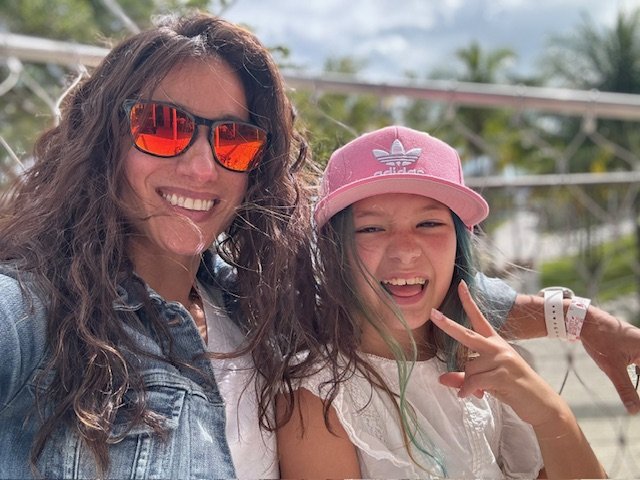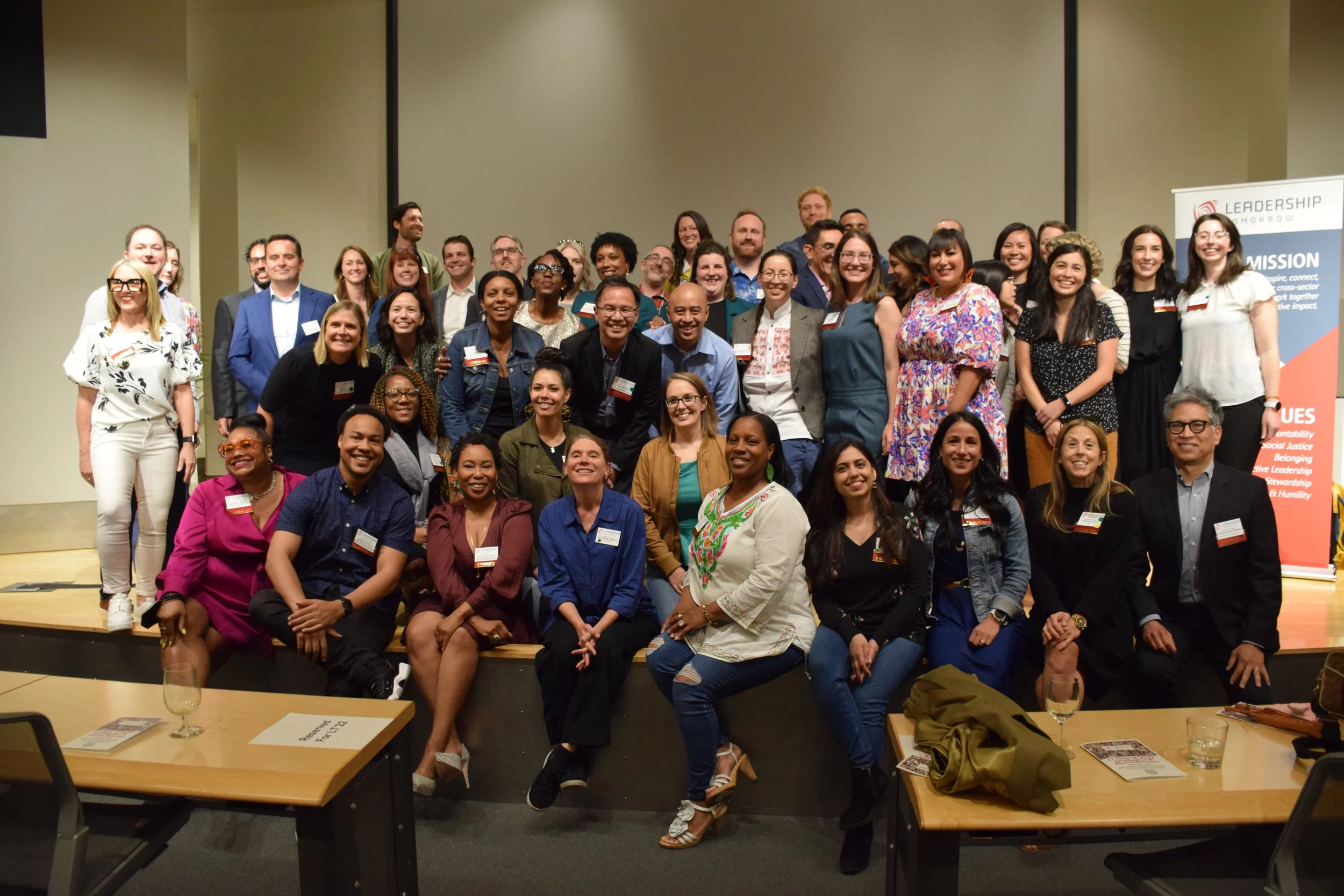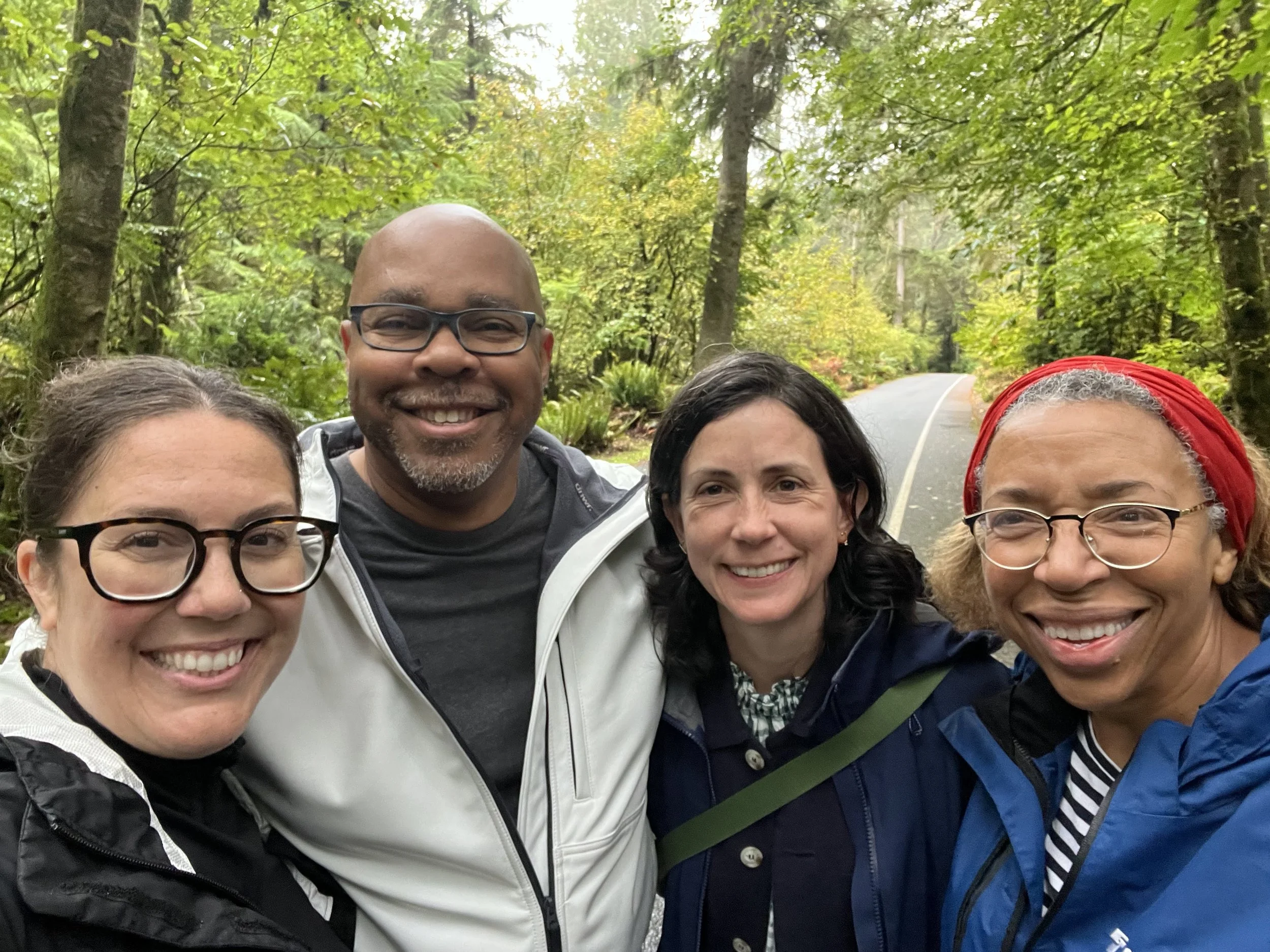Michaela Geronima Doelman, LT'22
Alumni in Action: Michaela Geronima Doelman, LT'22
Engaged leadership is the foundation of thriving communities.
For 40 years, Leadership Tomorrow has worked at the forefront of civic engagement to cultivate a network of inclusive, courageous, and curious leaders across Puget Sound. As we celebrate this special milestone, we are proud to highlight stories from LT alumni who continue to shape our region into a vibrant, vital community where all can thrive. Explore moments from their leadership journeys, past and present, as we consider collectively what challenges and opportunities lay ahead in the next 40 years—and beyond.
Michaela with her classmates at the LT’22 Graduation & Alumni Reunion
How did LT influence your leadership journey?
LT influenced both my philosophical and direct approach to leadership. At a philosophical level, it helped me to rethink leadership, not just with regards to people but at a systems level. Traditionally, I thought about leadership as how I lead others. Through LT, I now also see it as how I engage with community and create partnerships with other sectors to achieve greater outcomes and impacts in my work and in the region.
At the same time, LT also influenced how I lead people, as I now have a much greater appreciation and focus on personal relationships. I previously saw leadership as one-sided: my role was to be authentic, but to focus my energy on supporting the people I led. What I’ve learned is that authentic relationships are equal: you can’t lead with relationships unless you’re willing to be vulnerable and accept help from others as well. After LT, I show up to my work with much more humility and willingness to connect, both on a systemic and personal level.
How did LT contribute to your understanding of our region’s challenges and opportunities?
As a state government employee, I went into LT thinking I had a fairly good understanding of our region’s challenges and opportunities. LT helped me understand how little I actually knew. It’s instilled in me a curiosity to keep listening and learning, as I also now realize how much more I don’t know.
Specifically, LT helped me see how important it is to listen to the community most impacted by challenges as the one with the best insights into future opportunities that will work. I also developed a greater understanding for why partnerships between public, private, and nonprofit sectors are vital for addressing big problems like affordable housing, environmental justice, and public safety.
LT helped me grow from a baseline theoretical understanding of problems and opportunities, exposed me to people who shared lived experiences, impacts and successes, and ignited a curiosity in me to stay involved at the community and government levels to make impact.
Michaela with her daughter
Which LT connection has had the greatest impact on you?
I live in a fairly homogenous neighborhood, and the busier I get with work and raising kids, the less I’m able to find opportunities for new experiences and ways to connect with the broader community. One of the most valuable parts of the LT program was our racial caucus groups where I got to build friendships with people who I never would’ve met in my day-to-day routine.
These are people who see me, who believe and understand my experiences without me having to explain myself, and who can offer insight and connection in a way I’d been yearning for. My LT community saved me from extreme burnout and compassion fatigue during one of the most challenging times in my career. LT’s emphasis on volunteering within your community and method of sharing out opportunities to support small nonprofits helped to connect me to the Voice of Pacific Island Nations (VOPIN), a nonprofit in Kitsap county that I’d never heard of before. It fulfills a mission closely aligned to my values, and I’ve been a board member for a year now. I am so fulfilled by the work I do with them!
Why do you think LT is important in 2024—and the next 40 years?
We’re having a lot of conversations right now on how artificial intelligence (AI) is going to drastically change how society functions. We’re at a crossroads as a society: we are making decisions that will impact whether we leverage technology to further perpetuate the disparities that exist and allow technology to make things much easier for some and widen the gap for those who do not—or, we can be purposeful and strategic about using technology in a way that closes those gaps, identifies where disparities exist, creates purposeful interventions, and ensures that everyone has access to basic resources, healthcare, and opportunities to be engaged and contributing community members.
The only way we’ll be able to achieve that goal is if we have leaders who understand what our complex community challenges are. These leaders must be willing to engage in the difficult work of bringing people together to imagine a better way that doesn’t yet exist—and co-create it with the right people in the room.
LT is creating a space for those leaders to come together to build relationships, question what could be, imagine something better and more beautiful for all, and foster that work beyond the cohort year.
Michaela with her LT’22 classmates who volunteered as coaches for the LT’23 cohort
What unexpected outcomes arose from your participation in LT?
I left LT with way more questions than I had answers, which was an unexpected and pleasant surprise. With all of those questions also came a comfort in the uncertainty of it all.
LT taught me to be okay with not necessarily knowing what the solution needed to look like, yet seize the opportunity to come together with other people with shared passions. If we create community agreements and values to abide by, we will create something noteworthy. In other words, LT taught me to truly trust the process in a world where we so often constrain ourselves to an established plan before we even start.
How have LT’s values informed your leadership?
I try daily to live out LT’s values in how I lead my work within Washington’s state government. As the state’s chief human resources officer, I recognize that my role has a lot of power to change systems.
In our strategic plan, we call out our number one priority: to infuse pro-equity, anti-racism (PEAR) into all of our work. We recognize that, if we want more equitable outcomes for our workforce, then we need to change how we do our work. The only way we’ll achieve PEAR and belonging in our workforce is if we build new systems together, with the people closest to the problem influencing and informing decisions and commitments.
It’s been humbling and a little scary to be in a role with so much responsibility. I’m working to ensure that we continue to build processes that allow for curiosity and co-creation instead of siloed decision-making.














